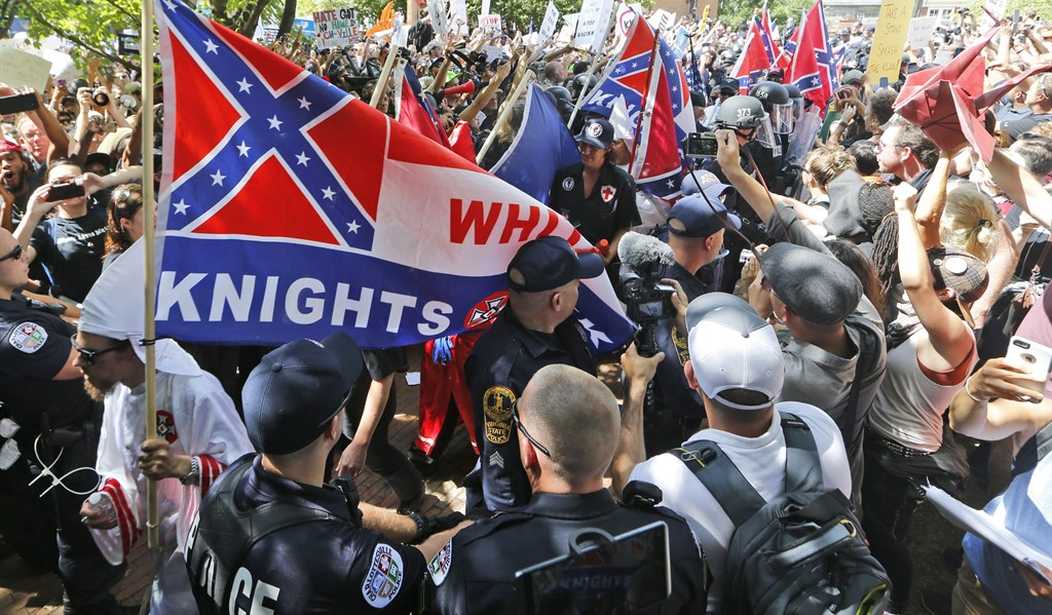Every so often, new polling is released tracking Americans' views on free speech issues -- and I find myself wincingly reviewing the results, filled with a sense of dread. Given the thesis of my book, it should come as little surprise that I've grown increasingly concerned about the extent to which significant swaths of the US population do not venerate the First Amendment's core pillars the way we all should, with some prizing tribalism or ideology over principle. For too many, speech that they like is "free speech," whereas speech they dislike is "hate speech" or whatever (reminder: there is no 'hate speech' exception in the First Amendment). As I've argued before, from both a constitutional and cultural vantage point, our legal and societal commitment to the First Amendment free expression is tested not by anodyne content, but by unpopular, extreme, or even evil views. In the aftermath of Charlottesville, YouGov asked the public whether certain fringe and despicable worldviews should be censored or banned by the government. Pluralities were in favor of dropping the ban hammer:

Allahpundit writes that the impulse appears to be bipartisan, with only small pluralities of Trump supporters making an "exception" for the KKK:
Pluralities of D’s and R’s agree that neo-Nazis and Klansmen should be subject to bans from speaking in their community, from having their literature carried by the local public library, and from teaching at the local college. Americans are also roughly evenly split on whether people should be barred by law from joining the Klan (35/39) or the American Nazi Party (38/37). There is one demographic that’s an outlier in the case of the KKK: “Narrow pluralities of Trump voters would allow the speech (49%-39%), and keep the book on the shelves (46% would not remove the book, 39% would).” This is, of course, the correct position if you support the First Amendment.
He's right. The First Amendment protects vile, ugly speech just as much as prim and proper speech. That's why horrible anti-Semitic bigots were famously permitted to march through a heavily Jewish community in Illinois. Non-violent speech and assembly are fundamental values that must be upheld for all, including society's dregs. Terrible, hateful people aren't entitled to any special platform, of course, but the state cannot bar or suppress the expression their views. The YouGov survey also asked about ISIS. Result:

Is the stronger inclination toward censorship here, fueled disproportionately by Republican responses, a result of xenophobic prejudice, or is there another explanation? There is, as AP conjectures:
Recommended
According to YouGov, GOPers lead Dems in wanting to remove ISIS books from the library by 14 points. How you interpret that depends on what you think motivates Republicans. To the left, no doubt, it’s a sign that conservatives see this issue more starkly when Muslim radicals rather than white radicals are the problem group. But ISIS is also more of a lethal threat than the KKK or the Nazis are, at least in their modern incarnations, notwithstanding last week’s murder in Charlottesville. When you think “KKK” nowadays, you think of husky white guys prancing around a Confederate statue carrying a rebel flag. When you think “ISIS,” you think of heads being sawed off.
Exactly. ISIS is an explicitly murderous terrorist group whose goal is world domination, achieved through brutal violence and subjugation. Neo-Nazis or Klansmen do still spill blood, but non-violent expressions of those ideologies are more readily identifiable than is the case with ISIS. But some of this gets complicated. Those of us who are basically First Amendment absolutists have to grapple with the thorny questions like the extent to which someone's free speech on behalf of, say, pro-ISIS ideas can or should be used to monitor that individual for additional signs of radicalization that may cause him or her to cross into physical attacks. Law enforcement would be derelict not to heed such glaring warning signs -- and that calculation surely also applies to radical right-wing groups and militias, no? Meanwhile, you may be wondering, what about Antifa? YouGov didn't poll any explicitly left-wing organizations or movements in its poll (I'd love to know why not, given the political violence problem in contemporary America). To me, that answer should be fairly straightforward: The speech and political gatherings of communists and hard leftists are absolutely protected, but any criminal conduct is not. That should be the consistently applied standard. Incidentally, does anyone doubt that while self-described Democrats outflank Trump voters on censoring KKK speeches or writings in this poll, the opposite would be true for Antifa?
Finally, for those in the hardcore pro-First Amendment camp -- which is the constitutionalist camp as far as I'm concerned -- I'll leave you with a worrisome omen, and a sign of hope. On the troubling side, is the ACLU (long a bastion of First Amendment absolutism, setting its obvious left-wing agenda), starting to go wobbly? American political tribalism is exceedingly potent these days, and the ACLU is clearly vulnerable to its currents. On the flip side, the Supreme Court's jurisprudence on the First Amendment has been consistently and lastingly strong for years. Though some controversial pro-speech (Citizens United) and pro-religious freedom (Hobby Lobby) cases were narrowly decided, other recent rulings on both fronts have been unanimous. I also highly recommend this important Megan McArdle essay on "private coercion," exploring how outrage mobs, often abetted and fueled by corporate actors, are stamping out controversial opinions and ruining lives, often with little recourse for the target.

























Join the conversation as a VIP Member